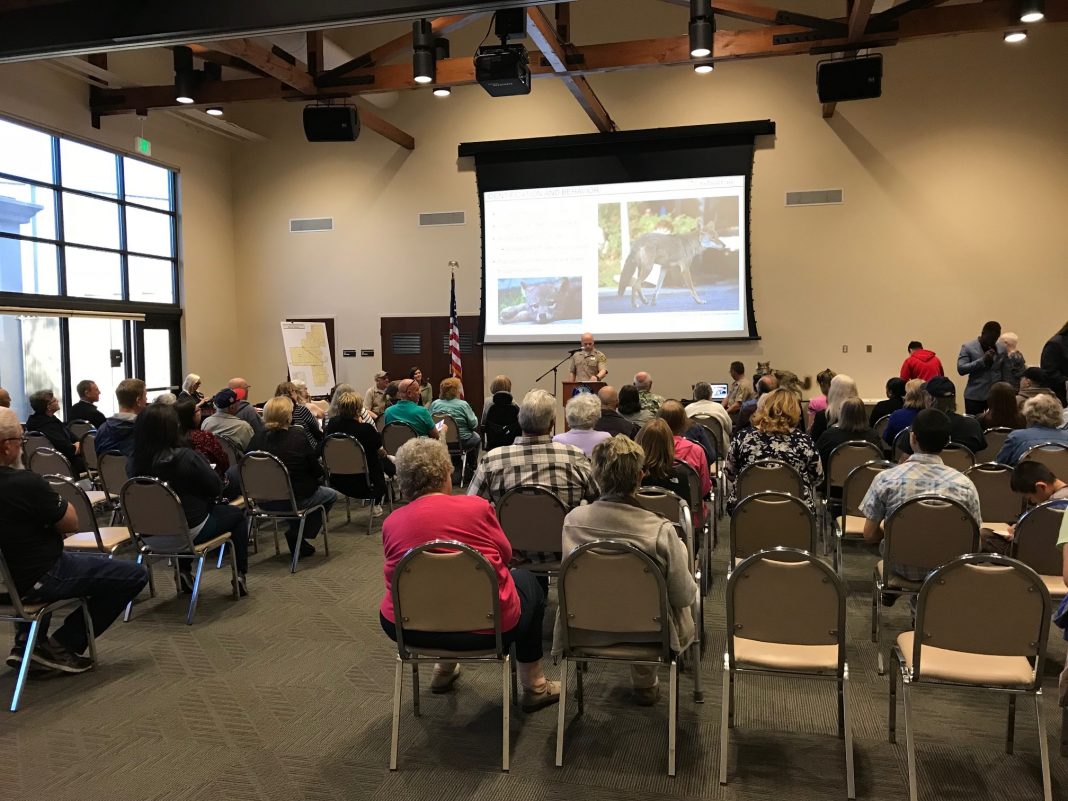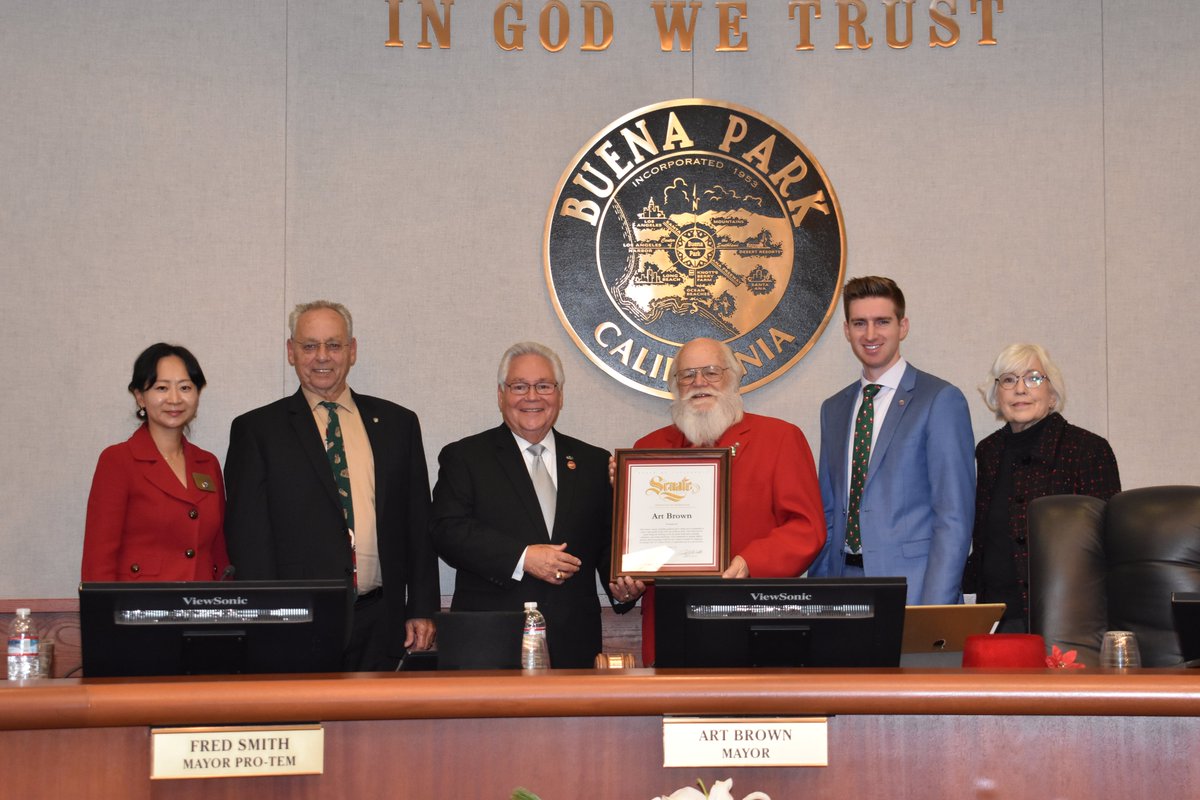Meeting held to educate the community
By Vickie Wagstaff
The city of Buena Park is no stranger to coyotes.
Its namesake high school has the coyote for its mascot and everyone is familiar with the Los Coyotes Country Club.
Both were named after a long-time Buena Park wildlife resident.
Coyotes have been with us for a long time, but it is the recent sightings of coyotes roaming city streets that has residents alarmed and frustrated.
Because of the recent publicized incidents and complaints the County has received, Orange County Supervisor Shawn Nelson organized a “Coyote Town Hall” Tuesday, March 27, at the Buena Park Community Center.
The event was hailed as an opportunity to learn about deterrents, decrease negative encounters and protect oneself and pets.
Instruction and discussions were led by representatives from the California Department of Fish and Wildlife and Orange County Animal Care.
Lt. Kevin Frager, OC Animal Care, explained that the number one reason coyotes are in our neighborhoods is they provide a source for food and water.
What can people do?
First, remove available food and water sources by limiting outdoor feeding of domestic animals, including stopping the practice of feeding feral cats.
Dave Dodge, CA Department of Fish and Wildlife, bluntly stated, “Feeding feral cats is feeding the coyotes. Either the coyotes are eating the cat food or they are eating the cats.”
If people feel they must feed the neighborhood cats, officials suggested putting the food out for a short time and then picking it back up, but food should not be left out all day. Residents and local businesses need to secure trash cans and make sure the lids are sealed and closed and that the cans cannot be turned over. Pick up fallen fruit in the yard, as this attracts rodents and both rodents and fruit attract coyotes. Limit outdoor water sources, including fountains and bird baths.
Second, limit options for shelter. This includes cleaning up wood piles, dead vegetation and high grasses. Securing openings to areas below porches and under houses with wire mesh keeps coyotes out of those areas. Without food, water, shelter and space, coyotes will move on.
Residents wanted to know why the City or County could not do more with the overpopulation of coyotes.
It was explained by the wildlife officials that they do not trap and relocate coyotes to open spaces, as they will just return. While it appears there are more coyotes these days, that is not necessarily true.
Urbanization of the original domain of coyotes is why people are seeing more of them locally.
Julianne Taylor, wildlife biologist, explained that, “Open areas are great places for coyotes—they are also great places for developers.”
As we continue to develop once-open areas in the cities, coyotes will continue to move into residential neighborhoods.
The only thing that will get them to move on is a lack of food, water or shelter.
Dodge is working to establish “Wildlife Watch” groups in interested cities. The groups are community-based, much like Neighborhood Watch.
Volunteer groups are taught, and they in turn teach their communities basic concepts to keep their families and pets safe through preventive and defensive measures.
The government does not have necessary resources to deal with all coyote issues. Educating and communicating are key to help the communities.
Residents were encouraged to contact city leaders to express interest in getting involved in Wildlife watch groups.
Aggressive coyote encounters and neighborhood sightings can be reported online at http://ucanr.edu/sites/CoyoteCaher/.
For additional coyote information visit www.OCgov.com and www.keepmewild.org.











